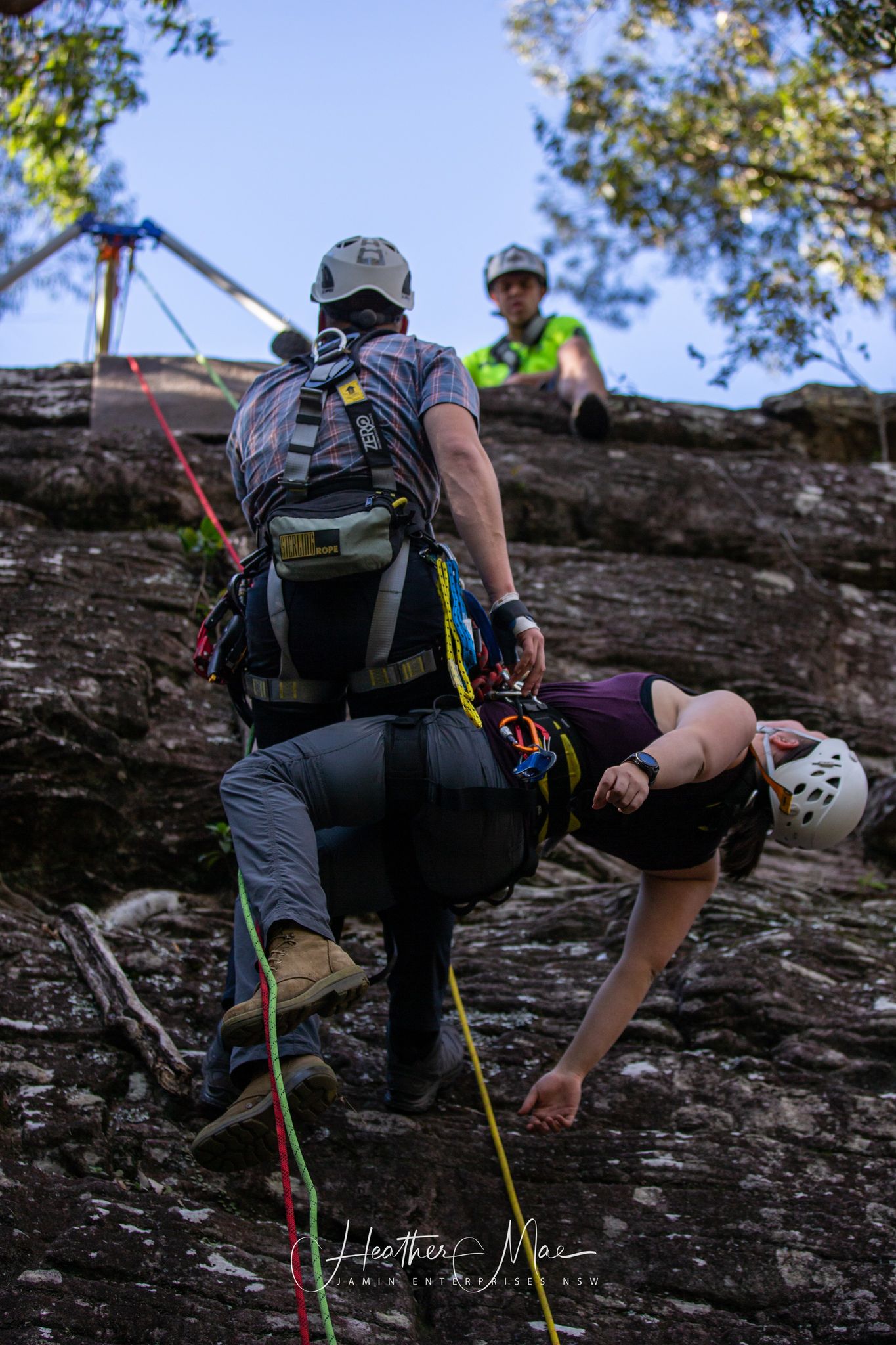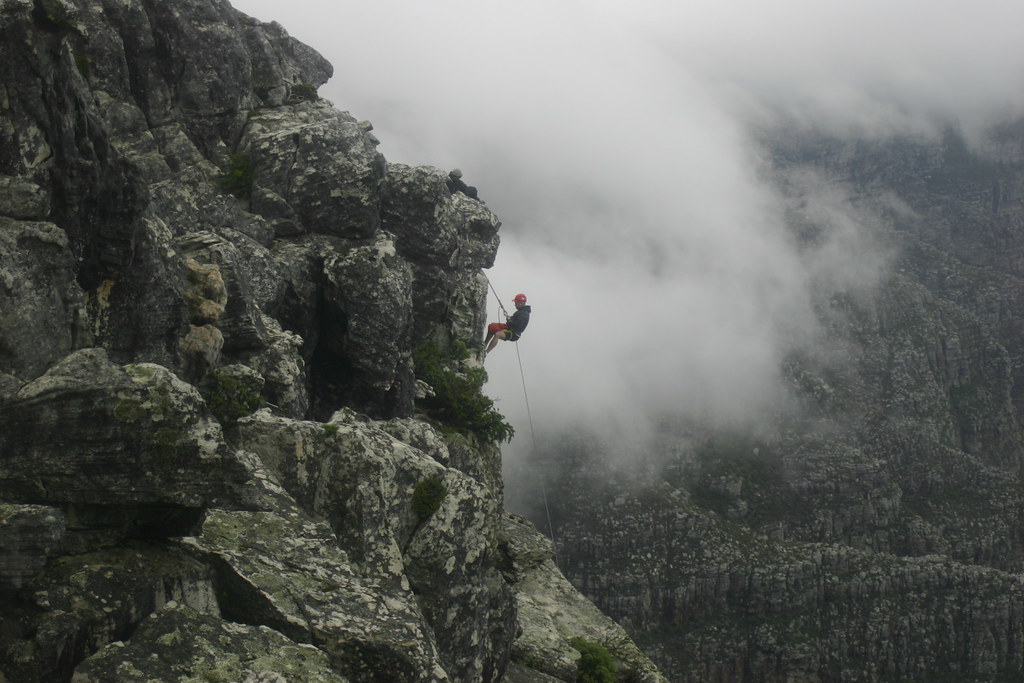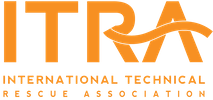
Rescue Training And Other Courses

We offer a variety of Outdoor Adventure, and Rescue Training courses in partnership with Paddle Australia and the International Technical Rescue Association.
The following courses below are delivered and assessed on behalf of Allens Training Pty Ltd RTO 90909 excluding Swiftwater Rescue Training, Kayak Guide and instructor courses.
Participate in a Rescue Operation
https://lismorefirstaid.trainingdesk.com.au/courses/100654
This unit of competency involves the skills and knowledge required to participate in rescue operations as a member of a rescue team; it underpins specialist rescue operations. This includes a wide range of rescue and environmental situations which may incorporate industrial, rural, bush and extreme environmental conditions.
Typically, personnel performing these roles have completed induction or recruitment training and are commencing work as a member of an operational team. They will work under supervision in a team but may be responsible for completing singular tasks relating to a rescue.
It is applicable to personnel from the emergency services, volunteer organizations and/or associated industries.
Prerequisite:
- Holding the prerequisite unit HLTAID003 – Provide first aid
(* only if undertaking training related to the fire sector). - Physical capability to be able to meet the demands of the practical demonstration skills.
- Capable of working under supervision in a team while being physically able to complete individual tasks relating to rescue, autonomously, in a range of simulated and real locations.
Typical Duration: 7 Hours
Course Code: PUASAR022
Certificate:PUASAR022 – Participate in a rescue operation
Course Syllabus:
Individuals undertaking this course will be expected to complete both written and practical assessment tasks.
Course Variations:
The skills in this course are applied in accordance with Commonwealth and State/Territory legislation, Australian/New Zealand standards and industry codes of practice. No licensing, legislative or certification requirements apply to this unit at the time of publication.
Re-Certification:
This certificate does not require renewal
Recommended Student Equipment:
- N/A – All training equipment will be provided.
Fire Warden Courses – Facility Fire Safety
https://lismorefirstaid.trainingdesk.com.au/courses/100619
This course has been developed for individuals who wish to work or who are appointed in a Facility Fire Safety role. The identified units of competency are industry standard for individuals who are members of an ECO who are chief wardens, deputy chief wardens and communications officers, required to make decisions about the safety of occupants during a facility emergency, give instructions on the priority order for responding to an emergency incident and conclude the facility emergency incident.
Pre-Requisite:
- Participants must have the physical capacity to use the appropriate equipment and complete assessment tasks, including commanding, controlling and coordinating of facility emergency response procedures.
Typical Duration: 14 Hours
Course Code: (PUAFER001-PUAFER008)
Certificate: Course Set Facility Fire Safety (PUAFER001, PUAFER002, PUAFER004, PUAFER005, PUAFER006, PUAFER008)
The following units will be included in your certificate:
- PUAFER001 – Identify, prevent and report potential facility emergency situations
- PUAFER005 – Operate as part of an emergency control organization
- PUAFER002 – Ensure facility emergency prevention procedures, systems and processes are implemented
- PUAFER006 – Lead an emergency control organization
- PUAFER004 – Respond to facility emergencies
- PUAFER008 – Confine small emergencies in a facility
Course Syllabus:
This course will equip individuals with the skills and knowledge required to have first attack firefighting skills, including preparing for emergency situations, identifying and assessing an emergency, safely confining emergencies, using initial response equipment and reporting on the facility’s emergency response. The course has been developed to cover a broad range of emergencies and facilities as considered in Australian Standard 3745 and Australian Standard 4083.
Participants in this course will also learn how to effectively:
- Understand roles and responsibilities
- Understand legislation relating to fire safety
- Identifying fire safety installations and equipment in a building
- Develop an awareness of maintenance and records relating to fire safety
- Develop risk management strategies
- Emergency Planning Processes
- Conducting and Evaluating evacuation exercises and fire drills
- Operating emergency protection and emergency control equipment
Course Variations:
The course has been developed to cover a broad range of emergencies and facilities as considered in Australian Standard 3745 and Australian Standard 4083.
Re-Certification:
This certificate does not require renewal
Recommended Student Equipment:
- N/A – All training equipment will be provided.
Vertical Rescue
https://lismorefirstaid.trainingdesk.com.au/courses/100661
This course contains the skills and knowledge required to undertake vertical rescues in a range of emergency situations in natural and man-made environments. It includes a range of vertical rescue situations, preparing and responding to rescue situations, assessing rescue scenes, establishing vertical rescue systems and performing in and terminating rescues. The course is applicable to personnel from the emergency services, volunteer organizations and associated industries.
Prerequisite:
- Holding the prerequisite unit PUASAR022 Participate in a rescue operation
- Physical capacity to be able to demonstrate vertically removing a casualty from an emergency situation where there may be a risk to life
Typical Duration: 24 Hours
Course Code: PUASAR032
Certificate: PUASAR032 – Undertake vertical rescue
Course Syllabus:
Complete both written and practical assessment tasks.
Course Variations:
The skills in this course are applied in accordance with Commonwealth and State/Territory legislation, Australian/New Zealand standards and industry codes of practice. No licensing, legislative or certification requirements apply to this unit at the time of publication.
Re-Certification:
This certificate does not require renewal
Recommended Student Equipment:
- N/A – All training equipment will be provided.
Road Crash Rescue
https://lismorefirstaid.trainingdesk.com.au/courses/100661
This course applies to employees or volunteers who are members of a rescue team and will provide individuals with training to safely complete various types of onsite emergencies. The course equips participants with the skills to perform complex rescues of a trapped casualty from a motor vehicle and will equip them with a range of techniques, and to operate specialist equipment to undertake the rescue.
It will provide individuals with the skills and knowledge required to gain access to and extricate casualties from vehicles that have crashed on the road, such as cars, motorcycles, buses, vans, tracks and semi-trailers, whilst minimizing the potential for further injury and preserving the integrity of evidence.
Prerequisite:
- Holding the prerequisite unit HLTAID003 Provide first aid
- Holding the prerequisite unit PUASAR022 Participate in a rescue operation
- Physical capability to be able to physically gain access to and extricate entrapped casualty/s from vehicles such as cars, motorcycles, buses, trucks and semi-trailers
Typical Duration: 15 Hours
Course Code: PUASAR024
Certificate: PUASAR024 – Undertake road crash rescue
Course Syllabus:
- Prepare and respond to road crash rescue
- Establish and maintain rescue scene safety
- Manage casualties
- Remove casualties from entrapment
- Conclude road crash rescue operations
- Theory assessment –A written assessment consisting of multiple-choice and short answer questions. The student must complete all assessment questions.
Course Variations:
The skills in this course are applied in accordance with Commonwealth and State/Territory legislation, Australian/New Zealand standards and industry codes of practice. No licensing, legislative or certification requirements apply to this unit at the time of publication.
Re-Certification:
This certificate does not require renewal
Recommended Student Equipment:
- N/A – All training equipment will be provided.
Working At Heights
https://lismorefirstaid.trainingdesk.com.au/courses/100717
The Work safely at heights course reflects the skills and knowledge required in roles undertaken by individuals who perform operational workplace tasks involving the requirement to work safely at heights in the resources, factory, construction, maintenance and infrastructure industries. It is essential for someone who works in a position where there is any risk of a fall.
With the aim of preventing falls, working at heights training will provide you with the skills, knowledge and most importantly the confidence required to work safely at heights in the work environment safely.
Prerequisite:
- The physical capacity to be able to meet the demands of the practical demonstration skills including gaining access, working, and egress from a place of height whilst wearing the appropriate PPE.
- Sufficient English language, literacy, numeracy and visual interpretation skills to successfully complete the course.
Typical Duration: 8 hours
Course Code: RIIWHS204D
Certificate: RIIWHS204D Work safely at heights Certificate
Course Syllabus:
The course covers applying policies and procedures, using document information to interpret and apply technical and safety information; assessing hazards and risks for working at heights and how to control them; using personal protective equipment; identifying safety systems and fall protection equipment (rigging of and anchoring systems) and checking the fitting, making adjustments and anchoring of fall protection equipment.
Course Variations:
Licensing, legislative, regulatory and certification requirements that apply to this unit can vary between states, territories, and Industry sectors. Your course will cover the relevant requirements for your jurisdiction.
Re-Certification:
No industry recommended renewal is identified on the certificate, employers are recommended to consult with stakeholders to identify appropriate training periods.
Recommended Student Equipment:
- N/A – All training equipment will be provided.
Swift Water Rescue Training
We offer 3 Swift-Water rescue courses through the International Technical Rescue Association (ITRA)
In order of suggested learning they are:
Introduction to Swiftwater Responder (ISR)
This course introduces how to provide initial response to swift-water and flood incidents, effect shore based or wading rescues, and be able to effect self-rescue. It is aimed at those wanting to learn the basics of swift-water rescue in preparation for Introduction to Swift-water Technician (IST) course and/or assessment against the ITRA Level 1 Swift-water Responder Qualification. The ISR course is attendance based and upon participation of all the respective learning objectives, a programme completion certificate can be issued to members upon payment of fee from the Association.
Prerequisite: Basic swimming ability
Typical Duration: 2 days
Course Code: ISR
Certificate: ITRA Programme Completion, ITRA Attendance Certificate
Course Syllabus:
Overview of ITRA, incident command, rescue and safety laws, management of animals in emergencies, communications and signals, command tactics, night operations, knots, rescue equipment, anchoring, hydrology, environmental care and bio-security, swift-water hazard management, medical considerations, vehicle drowning prevention, contamination/decontamination, water craft types, swift-water swimming techniques, throw bag rescues, shallow water crossing methods, entrapment drills, cinch rescues, shore based vehicle stabilization, boat on tether, inflatable fire hose, culvert and storm drain rescue, river search strategies, reach based rescues, and determining rescue/recovery mode.
Course Variations:
ITRA Instructors may teach additional learning objectives. In such cases, these will be shown on the student’s ITRA Record of Learning. Students may attend multiple courses from ITRA instructors to meet programme completion requirements.
Re-Certification:
As this is not a competency qualification (like ITRA Level 1 Swift-water Responder), it does not have an official expiration date. We recommend that practitioners seek to become assessed for competency with our competency qualifications, which must be re-assessed every three years to maintain currency.
Recommended Student Equipment:
- Personal Flotation Device (PFWD)
- Wet-suit or dry-suit
- Water rescue helmet
- Pea-less whistle
- River knife
- Water rescue throw-bag
- River or sports shoes
- Dive or river gloves
- Alloy locking karabiner
- Prussik cord
Introduction to Swiftwater Technician (IST)
This course builds on the ITRA Introduction to Swift-water Responder course (or may be delivered together) and introduces how to carry out contact rescues using swim and boat based methods up to Class II. It is aimed at those wanting to learn intermediate level skills required for swift-water rescue in preparation for Introduction to Swift water Advanced (ISA), Introduction to Swift-water Boat Operations (ISB) course and/or assessment against the ITRA Level 2 Swift-water Technician Qualification. The IST course is attendance based and upon participation of all the respective learning objectives, a programme completion certificate can be issued to members upon payment of fee from the Association.
Prerequisite: ITRA Introduction to Swift-water Responder
Typical Duration: 3 days
Course Code: IST
Certificate: ITRA Programme Completion, ITRA Attendance Certificate
Course Syllabus:
Helicopter safety, rigging mechanical advantage systems, in-water spinal rolls, zip lines, strainer negotiation, combat and towed swim, live bait/tethered rescue swimmer drills, V lower rescue, use of capture plates, boat on basic high-line rigging, knowledge of rescues from high hazard features (low head dams, aqueducts, canals, ice, mud etc), quick release harness operation, wading based vehicle rescues, power boat types, line crossing methods, zip line deflection and using curtain captures on tension diagonals.
Course Variations:
ITRA Instructors may teach additional learning objectives. In such cases, these will be shown on the student’s ITRA Record of Learning. Students may attend multiple courses from ITRA instructors to meet programme completion requirements.
Re-Certification:
As this is not a competency qualification (like ITRA Level 2 Swift-water Technician), it does not have an official expiration date. We recommend that practitioners seek to become assessed for competency with our competency qualifications, which must be re-assessed every three years to maintain currency.
Recommended Student Equipment
- Personal Flotation Device (PFD) With Quick Release Harness
- Wet-suit or dry-suit
- Water rescue helmet
- Pea-less whistle
- River knife
- Water rescue throw-bag
- River or sports shoes
- Alloy locking karabiner
- Prussik cord
Introduction to Swiftwater Advanced (ISA)
This advanced course introduces how to carry out contact rescues from vehicles in swift-water, as well as perform rescues and body recoveries from a range of challenging river and flood environments, including low head dams and aqueducts. It is aimed at those wanting to learn advanced level skills required for swift-water rescue, body recovery from water and/or assessment against the ITRA Level 3A Swift-water Advanced Qualification. The ISA course is attendance based and upon participation of all the respective learning objectives, a programme completion certificate can be issued to members upon payment of fee from the Association.
Prerequisite: ITRA Introduction to Swift-water Technician
Typical Duration: 4 days
Course Code: ISA
Certificate: ITRA Programme Completion, ITRA Attendance Certificate
Course Syllabus:
boat on reeving high-line, class III advanced swimming, rescues from low head dams and aqueducts, pack floats, wader safety, body recovery legal issues, use of river fins, disaster victim identification, recovery incident management, basic forensics for body recovery, infectious diseases in body recovery, paddle boat handling Class III, using adjuncts in water rescue, below surface drowned victim recovery, vehicle behavior in water, rescue methods from vehicles in water, night operations, cargo net rescue/recovery, rescue swimmer vests and more.
Course Variations:
ITRA Instructors may teach additional learning objectives. In such cases, these will be shown on the student’s ITRA Record of Learning. Students may attend multiple courses from ITRA instructors to meet programme completion requirements.
Re-Certification:
As this is not a competency qualification (like ITRA Level 3 Swift-water Advanced), it does not have an official expiration date. We recommend that practitioners seek to become assessed for competency with our competency qualifications, which must be re-assessed every three years to maintain currency.
Recommended Student Equipment:
- Personal Flotation Device (PFD)With Quick Release Harness
- Wet-suit or dry-suit
- Water rescue helmet
- Pea-less whistle
- River knife
- Water rescue throw-bag
- River or sports shoes
- Karabiners and prussiks
- Waterproof headlamp for helmet
Kayak Guide
We offer training and assessment to become a white water or flat water Guide. This will allow you to be on a trip with a fellow instructor on a river activity.
Course Duration: 2 days
Cost: $500 depending on numbers
Guide – A person who leads or guides a group without the intention of imparting skills or knowledge beyond that which is necessary to participate safely and adequately in the activity. At the end of a session or program with a guide, the intent is not for the participant to have acquired the skills to independently participate in the activity.
You will also need a co-requisite of Rescue 2 award through paddle Australia
Instructor Courses
We offer training and assessment to become a white water or flat water instructor. This will allow you to be a leader on a river activity.
Course Duration: 3 days
Cost: $800 depending on numbers
Instructor – A person who facilitates skill transfer or development to participants so that they may act independently or with minimal supervision. This requires the instructor to be able to critique technique, apply a variety of appropriate instructional strategies and may require them to assess participant’s skill acquisition at the end of a program or session. Instructor awards include all the elements of the related Guide awards.
You will also need a co-requisite of Rescue 2 award through paddle Australia

